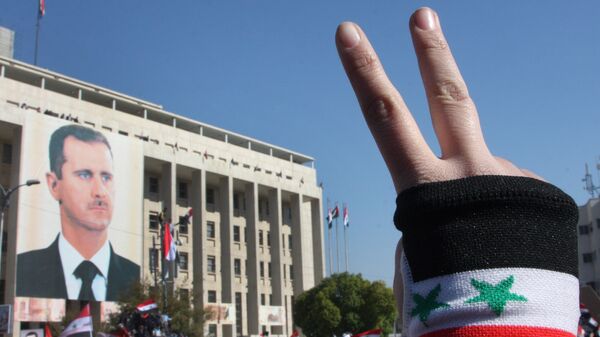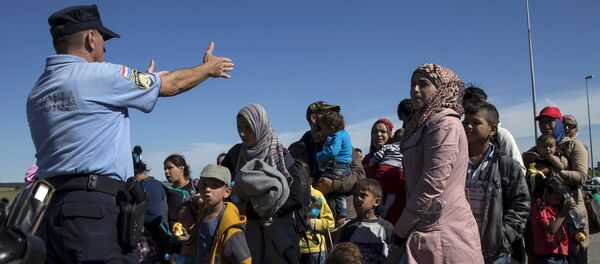A new cold war crisis is spreading like wildfire across Eastern Europe and the Middle East, prompting growing tensions between Russia and the West; US and NATO top officials urge Moscow to give up on Syrian President Bashar al-Assad, apparently forgetting what happened to Iraq and Libya after the US' involvement in the countries' domestic affairs.
"Russia has said for nearly a decade and certainly since the beginning of the Arab Spring that every time the United States begins a "regime change" the result is something much worse. Russia points to what happened in the aftermath of the American war in Iraq, it points more recently to what happened when we abetted the overthrow of Gaddafi in Libya. And when these things happen: failed states, civil wars, extremists… who pays the price? Not the United States. It's these countries. And now we see Europe itself facing a refugee crisis," professor of Russian studies at Princeton University and New York University Stephen F. Cohen emphasized in his interview with US author John Batchelor.
To complicate matters even further, the overthrow of Assad would inevitably lead to hundreds of thousands or even millions of refugees moving across the Eurasian continent and looking for sanctuary.
The professor added that there are a number of Russian jihadists fighting with Islamic State which could return to Russia's North Caucasus to resume their terrorist activities.
"So Russia sees what's going on in Syria just as it sees the Ukrainian crisis. And just as the Ukrainian crisis and the Syrian crisis are linked geopolitically in the minds of Moscow, Brussels and the United States, for Russia they are the two looming threats in the world today," Professor Cohen emphasized.
According to the professor, since the end of the "First Cold War" Washington has launched about ten invasions in various countries, overthrown a lot of regimes, pushed NATO closer to Russia's borders and built what the White House called "a post-Cold War security system" in Europe, excluding Russia from it.
Russia's foreign policy approach toward Syrian affairs differs drastically from that of the United States. Russia's historical experience lies at the root of the Kremlin's position.
"Russia has always been a multi-ethnic state quite different from the United States," the professor noted.
In contrast with the US, which is regarded as the "melting pot" for various nations, Russia accommodates hundreds of ethnic groups which have their own territories and their own languages.
"Arguably, it gives Russia a better understanding of places like Syria and the Middle East generally where you have all these religions, all these cultures, all these ethnicities that lived for certain period of time in negotiated or imposed peace and now are in brutal civil wars," the professor elaborated.
Moscow envisages that in the result of a US-backed regime change in Syria, Islamic State would seize Damascus, while Washington and NATO officials are seemingly unable to calculate the possible consequences of their Middle Eastern policy.



